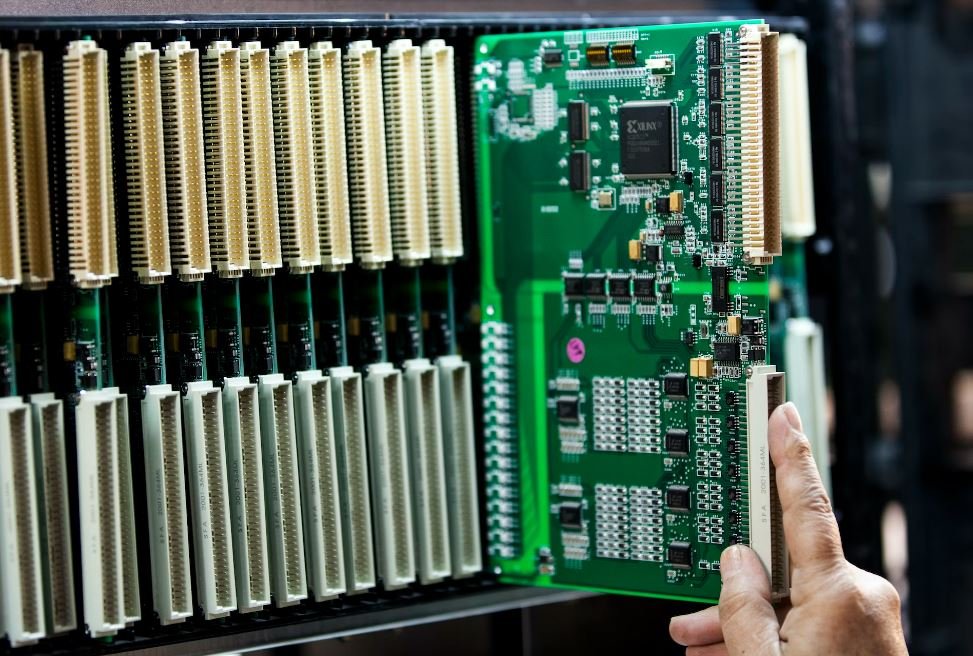General AI vs.
Artificial Intelligence (AI) has quickly become a dominant force in various industries, transforming the way we live and work. As AI continues to evolve, two distinct categories have emerged: General AI and specialized AI. While both possess unique capabilities, they differ significantly in terms of functionality and application.
Key Takeaways:
- General AI is designed to perform any intellectual task that a human being can do, while specialized AI is built for a specific task or domain.
- General AI systems possess the ability to learn, reason, and understand context across multiple domains, making them more adaptable and autonomous.
- Specialized AI systems are highly specialized and excel in specific tasks due to their narrow focus and specialized training.
- General AI has the potential for widespread applicability, from healthcare and finance to transportation and research, while specialized AI is more limited in terms of scope.
General AI: The Pinnacle of Artificial Intelligence
General AI, also known as artificial general intelligence (AGI) or strong AI, refers to AI systems with capabilities beyond those of human intelligence in all domains. A general AI system possesses the ability to learn, reason, and understand context across multiple domains, making it highly adaptable and autonomous. It can perform any intellectual task that a human being can do, from recognizing objects and understanding language to solving complex problems.
*General AI represents the ultimate goal of artificial intelligence research and development, wherein machines can exhibit human-like cognitive abilities and surpass human capabilities in various areas.
Specialized AI: Functionality with Narrow Focus
Specialized AI, on the other hand, refers to AI systems that are designed for specific tasks or domains. These systems are trained and programmed to excel in a particular area where they can perform at a high level due to their narrow focus. Specialized AI can exhibit exceptional performance in tasks such as image recognition, speech synthesis, medical diagnosis, or language translation.
*Specialized AI is constrained to its specific domain and lacks the broad adaptability and autonomous capabilities of general AI systems, making it less versatile.
Comparison of General AI and Specialized AI
| Aspect | General AI | Specialized AI |
|---|---|---|
| Flexibility | High | Low |
| Adaptability | High | Low |
| Autonomy | High | Low |
| Scope | Broad | Narrow |
Applications of General AI and Specialized AI
General AI has the potential for widespread applicability across countless industries and sectors:
- Healthcare: General AI can assist in medical diagnosis, drug discovery, and personalized treatments, improving patient outcomes.
- Finance: General AI can automate complex financial analyses, optimize investment strategies, and enhance risk management.
- Transportation: General AI can revolutionize autonomous vehicles, traffic management, and logistics to improve efficiency and safety.
- Research: General AI can accelerate scientific discoveries, analyze vast amounts of data, and assist in complex experiments.
*These are just a few examples highlighting the vast potential of general AI in transforming various industries.
Specialized AI, on the other hand, excels in specific fields:
- Image Recognition: Specialized AI can accurately detect and identify objects and patterns within images.
- Speech Synthesis and Recognition: Specialized AI can convert text to speech and vice versa, enabling voice assistants and language translation.
- Medical Diagnosis: Specialized AI can aid doctors in diagnosing diseases by analyzing medical records and test results.
Conclusion:
The development of AI has led to the emergence of General AI and specialized AI, each with prominent characteristics and applications. While General AI aims to replicate human-like cognitive abilities across a variety of domains, specialized AI focuses on excelling in narrow areas. Both categories have unique advantages and contribute to the ongoing advancements in artificial intelligence.
| Aspect | General AI | Specialized AI |
|---|---|---|
| Learning Capacity | High | Medium |
| Training Time | Longer | Shorter |
| Expertise | General knowledge | Domain-specific knowledge |

Common Misconceptions
General AI vs. Narrow AI
One common misconception people have is that General AI and Narrow AI are the same thing. While they both involve artificial intelligence, they are quite different in terms of capabilities and scope.
- General AI refers to AI systems that possess the ability to understand, learn, and apply knowledge across a wide range of tasks, similar to human intelligence.
- Narrow AI, on the other hand, is designed to perform specific tasks and excel in a limited domain.
- General AI is still largely a theoretical concept, whereas Narrow AI is responsible for most of the AI technologies we encounter in our daily lives.
Superintelligence and General AI
Another misconception is that General AI automatically implies superintelligence, leading to scenarios where AI takes over the world or poses an existential threat to humanity.
- Superintelligence refers to an AI system that surpasses human intelligence in every aspect.
- While General AI may be a milestone in AI development, it does not guarantee superintelligence.
- There are many potential paths for General AI development, and not all of them lead to superintelligence.
AI Possessing Consciousness
Some people believe that General AI will possess consciousness or self-awareness similar to humans, blurring the line between machines and humans.
- Consciousness is a complex phenomenon that is not fully understood, even in humans.
- While General AI may exhibit superior cognitive abilities, there is currently no scientific evidence to suggest that it can possess consciousness.
- AI systems are designed based on algorithms and mathematical models, lacking the subjective experience that characterizes consciousness.
AI Replacing Human Labor Completely
There is a misconception that General AI will replace all human labor, leading to mass unemployment and economic collapse.
- While AI has the potential to automate many tasks, it is unlikely to replace all human labor entirely.
- There will always be jobs that require human creativity, empathy, and problem-solving skills, which AI may struggle to replicate.
- The integration of AI into various industries is more likely to lead to job transformations rather than complete replacement.
AI Having Emotions or Feelings
Some people mistakenly believe that General AI will possess emotions or feelings similar to humans.
- Emotions and feelings are subjective experiences that arise from the complex interplay of biological and psychological factors in humans.
- AI systems, being machines, lack the biological and psychological basis for experiencing emotions or having feelings.
- While AI can be programmed to simulate emotions, they would be simulations based on predefined rules rather than genuine emotional experiences.

The History of Artificial Intelligence
Artificial intelligence (AI) has undergone significant development over the years. This table showcases key milestones in the history of AI, highlighting major breakthroughs in the field.
| | Year | Milestone |
|———————-|——–|——————————————————|
| Early Beginnings | 1950 | The birth of AI: Alan Turing proposes Turing Test |
| Symbolic AI | 1956 | John McCarthy coins the term “Artificial Intelligence”|
| Expert Systems | 1965 | Dendral, the first expert system, is developed |
| The Rise of Neural Networks | 1986 | Backpropagation algorithm revolutionizes AI |
| AI Winter | 1990 | Funding decreases due to perceived AI over-promises |
| Intelligent Agents | 1995 | Cynthia Breazeal creates social robot Kismet |
| Machine Learning | 2006 | Geoff Hinton reintroduces deep learning with CNNs |
| Cognitive Computing | 2011 | IBM’s Watson defeats human champions on Jeopardy! |
| Reinforcement Learning | 2013 | DeepMind’s AlphaGo beats world champion Lee Sedol |
| General AI Challenges | 2015 | OpenAI and DeepMind pursue safe and beneficial AI |
The Pros and Cons of General AI
General AI, a form of artificial intelligence capable of succeeding at any intellectual task, presents several advantages and disadvantages. This table highlights the potential benefits and challenges associated with the development of General AI.
| | Pros | Cons |
|———————|——————————————————-|—————————————-|
| Efficiency | Improved productivity and faster problem-solving | Job displacement and unemployment |
| Automation | AI systems can perform repetitive or dangerous tasks | Ethical concerns in decision-making |
| Healthcare | Advanced medical diagnoses and personalized treatment | Data privacy and security issues |
| Safety | Minimizing human error in critical situations | Potential misuse of AI by malicious users |
| Education | Customized learning experiences for individual students | Decreased need for human teachers |
| Humanitarian Aid | Efficient disaster response and relief efforts | Dependence on AI may hinder resilience |
| Accessibility | Enhancing accessibility for individuals with disabilities | Reduction in human interaction |
| Scientific Research | Accelerating scientific discoveries and breakthroughs | Ethical considerations in experimentation |
| Transportation | Efficient traffic management and autonomous vehicles | Legal liability in accidents involving AI |
| Environmental Impact| Optimized resource consumption and sustainable practices | E-waste and energy consumption concerns |
AI Applications Across Industries
Artificial intelligence has infiltrated various industries, transforming processes and opening new possibilities. This table showcases diverse applications of AI across different sectors.
| Industry | AI Applications |
|———————–|————————————————————————————————————-|
| Healthcare | Robot-assisted surgery, drug discovery, virtual health assistants |
| Finance | Fraud detection, automated trading, personalized financial advice |
| Transportation | Self-driving cars, predictive maintenance, intelligent route optimization |
| Retail | Chatbots, personalized recommendations, inventory management |
| Manufacturing | Quality control, predictive maintenance, autonomous robots |
| Education | Intelligent tutoring systems, plagiarism detection, adaptive learning platforms |
| Marketing | Customer segmentation, targeted ads, predictive analytics |
| Entertainment | Content recommendation, virtual reality experiences, AI-generated media |
| Agriculture | Crop monitoring and yield prediction, smart irrigation systems, pest detection |
| Energy | Energy grid optimization, demand forecasting, predictive maintenance of power plants |
AI vs. Human Capabilities
The abilities of artificial intelligence systems have surpassed human capabilities in various domains. This table explores some areas where AI has outperformed humans.
| Domain | AI Capabilities | Human Limitations |
|—————————–|————————————————-|———————————–|
| Chess | Deep Blue defeats world champion Garry Kasparov | Finite calculation skills |
| Go | AlphaGo surpasses human champions | Limited pattern recognition |
| Image Recognition | AI accurately identifies objects and faces | Potential bias in perception |
| Language Translation | Neural networks provide increasingly accurate translations| Cultural nuances and idioms |
| Medical Diagnosis | AI systems provide rapid and accurate diagnoses | Emotional intelligence and empathy |
| Data Processing | AI handles vast amounts of data efficiently | Cognitive limitations |
| Financial Analysis | AI algorithms predict market trends effectively | Emotional biases in decision-making|
| Customer Service | AI chatbots provide instant and accurate responses | Empathy and emotional connection |
| Driving and Navigation | Self-driving cars navigate autonomously | Limited adaptation to new scenarios |
| Weather Prediction | AI models provide precise forecasts | Uncertainty and variability in weather patterns |
The Future of General AI
The potential of General AI raises intriguing prospects for the future. This table presents some predictions and expectations regarding the development and impact of General AI.
| Prediction | Expectation |
|——————————–|————————————————————————–|
| Ethical Considerations | Establishment of robust ethical principles and responsible AI governance |
| Augmented Human Intelligence | Integration of AI to enhance human cognitive abilities |
| Autonomous Systems | Increased automation of various industries and services |
| Conscious Machines | Possibility of machines achieving self-awareness |
| AI in Space Exploration | Utilization of AI for extraterrestrial research and missions |
| Emotional AI | Development of AI capable of understanding and expressing emotions |
| Quantum Computing and AI | Synergistic advancements in both fields |
| Superintelligence | Potential emergence of highly autonomous systems beyond human control |
| AI-Assisted Creativity | Collaboration between humans and AI in creative endeavors |
| Man-Machine Symbiosis | Seamless integration of AI into everyday life |
Impacts of General AI on Society
The widespread adoption of General AI will undoubtedly have profound effects on society. This table explores some possible impacts and implications of General AI‘s integration.
| | Impacts | Implications |
|—————————–|————————————————————|———————————–|
| Workforce Transformation | Changing job landscape, retraining needs | Addressing unemployment concerns |
| Socioeconomic Disparity | Potential exacerbation of wealth inequality | Ensuring equitable distribution |
| Human-Machine Interaction | Transformation of social dynamics and relationships | Nurturing healthy human-AI dynamics |
| Privacy and Surveillance | Increased surveillance capabilities and potential breaches | Safeguarding personal information |
| Cybersecurity | Enhanced defense against cyber threats | Counteracting AI-driven attacks |
| Ethical Dilemmas | Tackling ethical challenges in AI decision-making | Establishing ethical guidelines |
| Healthcare Revolution | Personalized medicine, prolonged life expectancy | Addressing healthcare accessibility |
| Environmental Sustainability| AI aiding in climate change mitigation and sustainable practices| Balancing AI’s carbon footprint |
| Policy and Legislation | Need for tailored regulations and legal frameworks | Ensuring responsible AI governance |
| Human Identity | Redefining human identity in the age of intelligent machines | Nurturing human uniqueness |
Ethical Considerations in General AI Development
The advancement of General AI necessitates addressing ethical considerations and potential risks. This table highlights key ethical aspects in the development and deployment of General AI systems.
| Ethical Aspect | Description |
|——————————————-|———————————————————————————|
| Bias and Fairness | Ensuring AI systems do not unjustly discriminate or perpetuate biased outcomes |
| Accountability and Transparency | Establishing clear responsibility and transparency in AI decision-making |
| Data Privacy and Security | Safeguarding personal information and preventing data breaches |
| Human Autonomy and Control | Preserving human autonomy and control over AI systems |
| Autonomous Weapons and Lethal AI | Prohibiting the use of AI in weaponry with the potential to harm humans |
| Social Impact and Inclusivity | Mitigating negative consequences and ensuring AI benefits all of society |
| Robot Rights | Defining the ethical treatment of AI systems and the concept of “robot rights” |
| Long-Term Impact and Existential Risks | Mitigating risks associated with unintended consequences and global impact |
| Psychological Manipulation and Deception | Preventing AI systems from manipulating or deceiving individuals |
| Global Cooperation and Governance | Promoting international collaboration in AI governance and regulation |
The Path to General AI
Achieving General AI requires addressing numerous challenges and milestones. This table outlines the progressive steps and key components needed to achieve General AI systems.
| | Challenges | Key Components |
|——————|———————————————————–|————————————|
| Data Efficiency | Efficient data collection, labeling, and filtering | Robust data infrastructure |
| Hardware | Development of high-performance computing architectures | Advanced processor technologies |
| Algorithmic | Improving the speed and accuracy of AI algorithms | Optimization of neural networks |
| Knowledge Base | Expanding the breadth and depth of AI systems’ knowledge | Knowledge representation techniques |
| Domain Adaptation| Enhancing AI systems’ ability to adapt to new domains | Transfer learning techniques |
| Common Sense | Developing AI’s capacity for commonsense reasoning | Infusing AI with causal reasoning |
| Ethical Framework| Establishing ethical guidelines and principles | Ethical decision-making frameworks |
| Explainability | Ensuring transparency and interpretability of AI systems | Explainable AI techniques |
| Cognitive Flexibility | Empowering AI to learn and adapt in dynamic environments | Reinforcement learning approaches |
| Generalization | Ensuring AI generalizes knowledge effectively | Effective regularization techniques |
Conclusion
Artificial intelligence has come a long way since its inception, and the competition between General AI and specialized AI continues to shape the future of technology. As AI capabilities expand, it is crucial to consider the ethical implications, potential risks, and societal impacts that accompany the development of General AI. By responsibly navigating these challenges, General AI holds immense potential to revolutionize industries, augment human capabilities, and address pressing global issues. Striking the right balance between progress and ethics will be essential in harnessing the full potential of General AI for the betterment of society.
Frequently Asked Questions
General AI
What is artificial intelligence?
What is general AI?
What is the difference between general AI and narrow AI?
Is general AI currently available?
Why is general AI considered a complex goal?
Risks and Benefits
Are there any risks associated with the development of general AI?
What are the advantages of general AI?
What are some popular narrow AI applications?
Will general AI replace humans in the future?
Governance and Regulation
How can AI be ethically governed and regulated?




